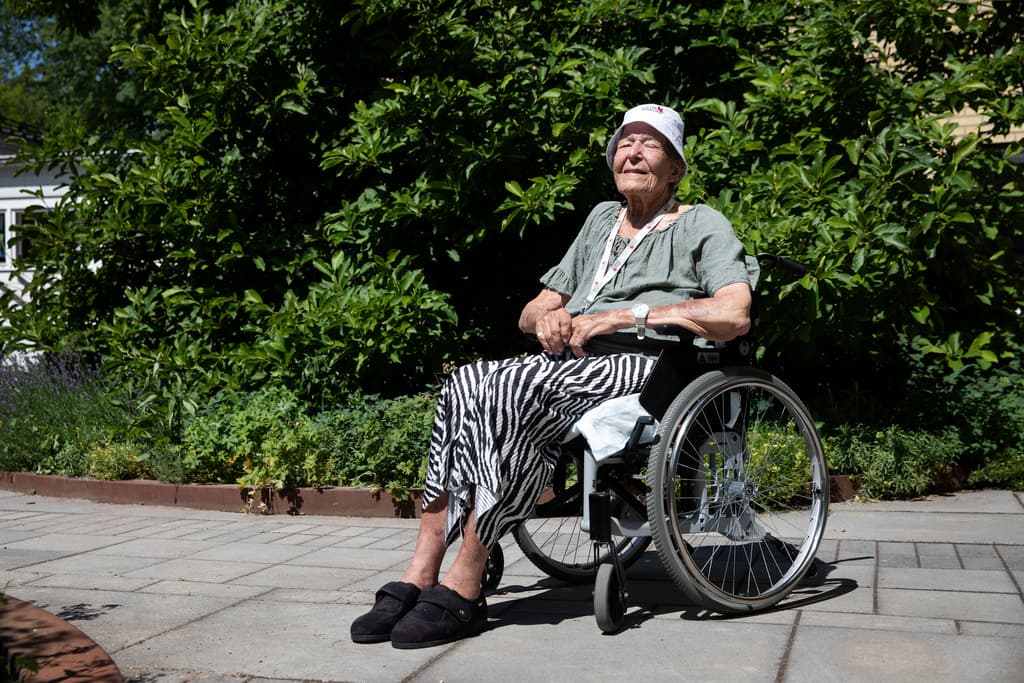A warmer climate with a risk of more and longer heatwaves places demands on elderly care. It concerns a particularly vulnerable group.
The risk of dehydration is quite large, says Ingrid Nordqvist who lives in an elderly home.
In the entrance to the inner courtyard of Hannahemmet in Bromma, Stockholm, there is a basket with sun hats. They are part of the effort to facilitate for the residents when the temperatures rise to around 30 degrees, as they have done during TT's visit.
Heatwaves are expected to become more common and intense due to climate change. The elderly are a group that is particularly exposed, and the government has urged municipalities to review the preparedness of elderly care in the event of a summer with high temperatures.
Ingrid Nordqvist appreciates the warmth but is careful not to stay too long in the sun. She describes a concern among the elderly in her vicinity that the temperatures will become high during the summer months. Several experience it as extra difficult when it is sunny and warm, she says.
Nordqvist hopes that a warmer climate will not quickly become noticeable.
It's terrible, it's terrible with heat and terrible with cold and there's a risk that it will be a lot of all kinds, she says.
Changed working method
At the elderly home, high temperatures during the summer mean a changed working method for the staff, who must be more attentive to the elderly's well-being, according to operations manager Marie Söderquist.
Not all residents may even feel thirsty. So we have to offer everyone fluids, but then it's not everyone who understands that they need it, they may not want it, and we can't force anyone, she says.
But heatwaves don't just mean increased demands on the staff's attention, but also on the organization as a whole, according to the operations manager.
It would be fantastic to have a building with AC, it would be completely fantastic. But we have different conditions depending on how the buildings are designed, says Söderquist.
"One summer at a time"
For the elderly home, it has been important to make risk assessments before each summer, which includes training of staff and planning of purchases.
From a long-term perspective, Marie Söderquist is uncertain whether elderly care is sufficiently prepared for the future climate.
We'll take one summer at a time, I think, and make our risk assessments. Then maybe those higher up will think more about the future, she says.
As the climate changes, heatwaves will become increasingly common, both globally and in Sweden. The heatwaves will also become more intense and longer, which places higher demands on society, both in terms of preventive adaptation measures and crisis preparedness.
Heatwaves lead to increased mortality, particularly for vulnerable groups.
The average temperature in Sweden is expected to rise by 3-5 degrees by the 2080s compared to the years 1960-1990.
Source: The Swedish Agency for Civil Contingencies






